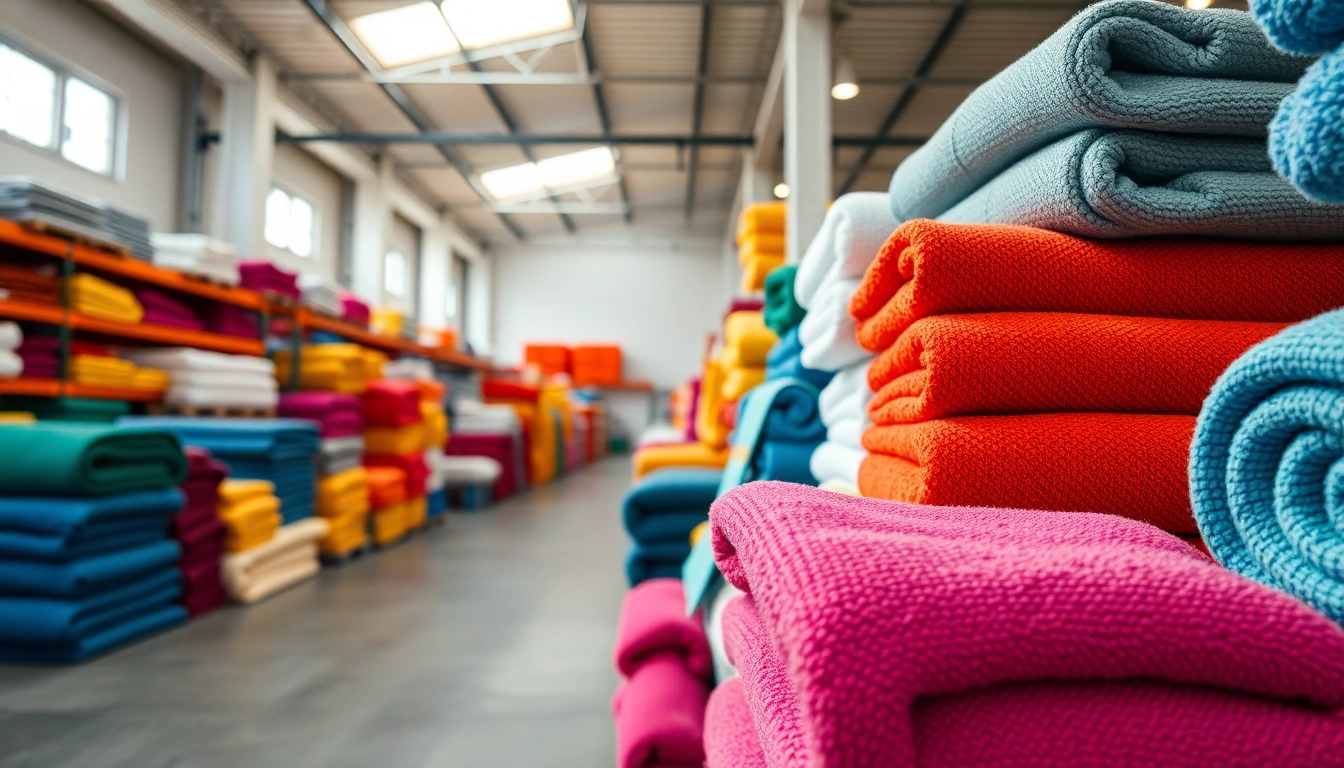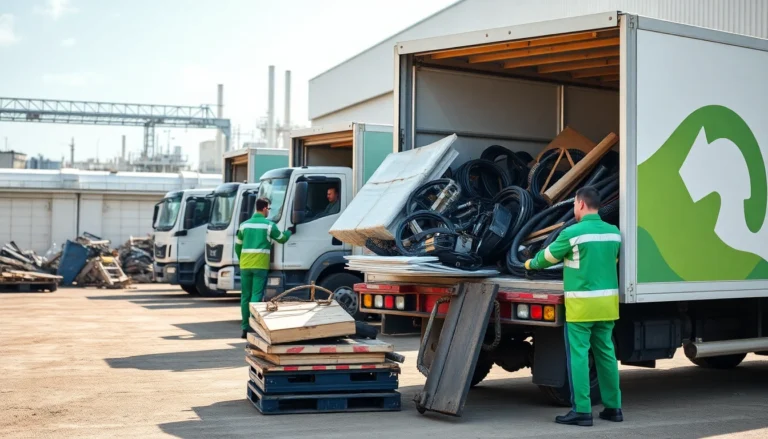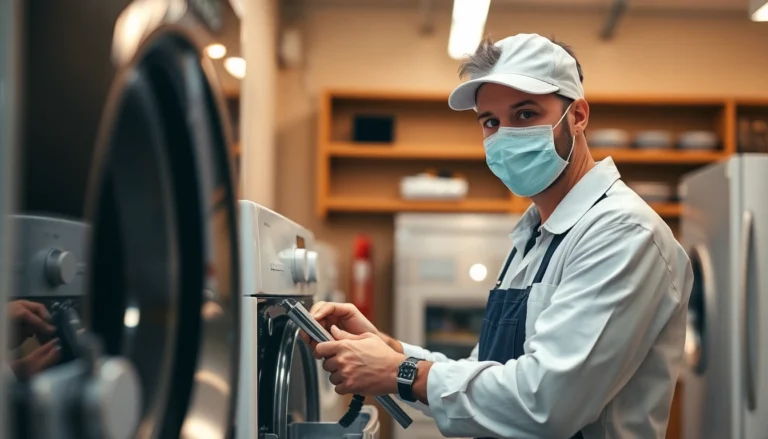
Understanding the Australian Towels Manufacturing Market
The Australian towels manufacturing industry has experienced significant growth driven by increasing consumer demand for high-quality, sustainable, and locally produced textiles. As a country with diverse climates and a strong emphasis on premium lifestyle products, Australia offers a unique market landscape where quality and eco-friendliness are highly valued. Recognizing the importance of sourcing reliable and innovative manufacturers is essential for businesses seeking to establish or expand their presence in this sector. An effective approach involves understanding current market trends, prominent competitors, and consumer expectations—elements that are critical for making informed sourcing and partnership decisions. To gain deeper insight into this thriving industry, explore the comprehensive range of Towels manufacturer in Australia.
Market Trends and Consumer Preferences in Australia
The Australian market has shown a strong inclination toward eco-friendly and organically certified towels, driven by heightened consumer awareness about environmental impacts. Manufacturers incorporating sustainable materials like organic cotton, bamboo, and recycled fibers are experiencing increased demand. Furthermore, luxury and premium-grade towels—characterized by softness, durability, and sophisticated designs—continue to dominate hospitality, retail, and direct-to-consumer sectors.
Customization has also surged as a critical factor; brands prefer tailored towels with logos, unique textures, or specific color schemes to stand out in a crowded market. The rise of online retail channels and direct-to-consumer brands has further accelerated the need for adaptable manufacturing processes capable of small-batch, high-quality production. Additionally, Australian consumers demonstrate preferences for locally made products, associating them with higher quality standards and ethical production practices.
Key Competitors and Differentiators
Leading Australian towel manufacturers such as Oasis Towels Australia, Loftex, and Rialto Linen have set benchmarks through their commitment to quality and innovation. Oasis Towels, for example, emphasizes custom bulk manufacturing with a focus on premium Turkish cotton, catering to international markets as well as domestic clients. Loftex stands out by integrating advanced textile technology, offering towels that balance softness, absorbency, and eco-friendly production. Rialto Linen Capitalizes on its luxury branding, providing exclusively Australian-made cotton towels that appeal to high-end consumers.
Differentiators among these manufacturers primarily include material choice, manufacturing flexibility, certification compliance (such as OEKO-TEX and GOTS), and their ability to offer sustainable options. Establishing trust through consistent quality, transparent supply chains, and innovative design is essential to differentiate in a competitive landscape.
Consumer Expectations for Quality and Sustainability
Australian consumers have high standards for quality, associating premium towels with superior softness, longevity, and colorfastness. Certifications such as OEKO-TEX Standard 100 and GOTS (Global Organic Textile Standard) serve as benchmarks for safety and sustainability, influencing purchasing decisions. Eco-consciousness extends to the entire supply chain—manufacturers who transparently source organic fibers and employ environmentally friendly dyeing processes gain a significant advantage.
Moreover, functional aspects like quick drying, antimicrobial properties, and durability are in high demand. The ongoing demand for sustainable products has also prompted manufacturers to adopt circular economy principles, encouraging towel recycling and eco-friendly packaging. To meet these expectations, companies must continually innovate their material sourcing, manufacturing processes, and quality assurance programs.
Choosing the Right Towels Manufacturer in Australia
Factors to Consider: Quality, Materials, and Certification
Selecting an ideal manufacturer begins with evaluating their quality standards. Top-tier manufacturers utilize high-grade materials like Turkish cotton, Egyptian cotton, or organic cotton, which ensure softness, absorbency, and durability. Certification plays a key role; certifications such as OEKO-TEX and GOTS not only validate safety and sustainability but also reinforce credibility with discerning clients and international buyers.
It is recommended to request detailed information about raw material sourcing, manufacturing practices, and quality control measures. Visiting manufacturing facilities or requesting comprehensive samples can help assess craftsmanship and consistency, thus reducing risk when establishing long-term partnerships.
Customization Options and Production Capabilities
Flexibility in customization—such as embroidered logos, specific patterns, or unique sizes—is vital for brands looking to differentiate their product offerings. The best manufacturers possess advanced machinery and skilled labor capable of fulfilling a broad range of customization requests while maintaining strict quality standards.
Additionally, evaluating production capacity and lead times ensures the manufacturer can meet your volume requirements and delivery schedules, especially during peak seasons or promotional campaigns. Effective communication channels and project management tools facilitate seamless collaboration, ensuring your specifications are met accurately.
Pricing Models and Minimum Order Quantities
Cost considerations are integral, yet they should be balanced against quality and sustainability credentials. Many Australian towel manufacturers offer flexible pricing models, including discounts for bulk orders, and may accommodate small batch runs for testing new designs or niche markets.
Clarifying minimum order quantities (MOQs) upfront helps prevent surprises and enables better planning. While some manufacturers may require MOQ of 500 or 1,000 pieces, others with advanced automation might accept smaller orders, ideal for startups and boutique brands aiming to assess market response.
Manufacturing Processes and Quality Assurance
Fabric Selection: Cotton, Microfiber, and Organic Materials
The foundation of high-quality towels lies in fabric selection. Cotton remains the industry standard due to its excellent absorbency and softness. Turkish and Egyptian cottons are sought after for their long fibers, which yield smoother, more luxurious towels. Organic cotton, grown without synthetic pesticides or fertilizers, appeals to health-conscious consumers and those prioritizing sustainability.
Emerging alternatives like microfiber are favored for their quick-drying properties and lightweight feel, often used in sports or travel towels. Manufacturers offering a range of fabric options provide clients with the flexibility to choose based on their target market and performance needs.
Production Technologies and Efficiency
State-of-the-art manufacturing facilities equipped with automated weaving, dyeing, and finishing machines enhance productivity and consistency. Advanced finishing techniques such as garment washing, brushing, and nep removal improve the tactile quality of the towels. Some manufacturers also utilize eco-friendly dyeing technologies like digital printing and low-impact dyes to reduce environmental impact.
Investing in efficient production technologies not only reduces costs but also shortens lead times and allows for rapid prototyping—crucial for launching new collections or customizing products for different markets.
Quality Control Standards and Certifications in Australia
Rigorous quality control procedures are essential to ensure product consistency. Australian manufacturers adhere to international standards and often obtain certifications like OEKO-TEX, GOTS, and ISO 9001. These certifications confirm environmentally friendly practices, safety for end-users, and operational efficiency.
Regular audits, batch testing, and third-party inspections help maintain high standards, minimizing defects and aligning products with clients’ specifications. Establishing clear quality benchmarks is vital for long-term success and reputation building.
Partnering for Success: Building Relationships with a Towels Manufacturer
Communication and Lead Times
Open lines of communication facilitate smoother collaboration. Transparent dialogue about design specifications, material choices, and production schedules reduces misunderstandings. Clarifying lead times upfront ensures that manufacturing and logistics align with your business calendar, especially for seasonal launches.
Many manufacturers now leverage digital project management tools and live updates, improving responsiveness and tracking progress efficiently.
Sample Testing and Product Guarantees
Requesting prototypes and samples before bulk production is a critical step. Sample testing allows clients to assess softness, absorbency, colorfastness, and overall quality. Reputable manufacturers often provide product guarantees or warranties to assure customers of their commitment to quality.
Addressing any issues early through iterations or modifications ensures the final product meets expectations and reduces costly reworks or returns.
Logistics, Shipping, and After-Sales Support
Coordinating reliable logistics is fundamental to maintaining supply chain efficiency. Leading Australian manufacturers partner with trusted carriers and offer flexible shipping options, including freight consolidation and delivery tracking.
After-sales support, including handling warranty claims and providing ongoing consultation, fosters long-term relationships. Manufacturers that are proactive in customer service and responsive to feedback tend to achieve higher client satisfaction and repeat business.
Innovative Trends and Future Opportunities in Australian Towel Manufacturing
Sustainable and Eco-Friendly Towel Production
Sustainability continues to evolve from a niche to a core industry focus. Innovations such as waterless dyeing, biodegradable packaging, and renewable energy-powered factories are shaping the future of Australian towel manufacturing. Companies investing in circular design—like towel recycling programs—are gaining market differentiation and consumer loyalty.
The integration of organic and recycled materials not only aligns with global environmental standards but also responds to consumer demands for ethically produced products.
Design Trends Catering to Australian and Global Markets
Minimalist aesthetics, earthy tones, and nature-inspired patterns are prominent in current design trends. Incorporating indigenous Australian motifs in collaboration with local artists can add authenticity and appeal to both domestic and international markets.
Functional trends such as antimicrobial finishes, quick-dry technology, and temperature regulation features are also emerging, serving niche markets in sports, travel, and healthcare sectors.
Integrating Technology for Customization and Efficiency
Advanced manufacturing technologies like digital printing, laser embroidery, and smart textile integration are revolutionizing customization options. Automated order processing systems streamline workflows and enable rapid response to market shifts.
Moreover, the adoption of Industry 4.0 principles—such as IoT-enabled machinery—enhances real-time monitoring, predictive maintenance, and overall productivity, positioning Australian manufacturers as leaders in innovative textile manufacturing.






